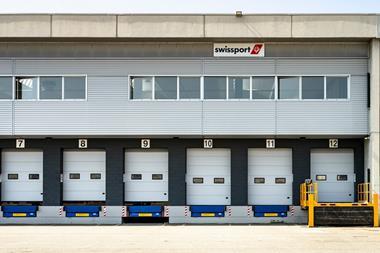The UK government has backed plans for the development of a new runway at Heathrow Airport.
The UK Cabinet’s economic sub-committee approved plans for a third runway at the London airport before the proposals were backed by the full cabinet.
The UK secretary of state for transport Chris Grayling said: "A successful, thriving aviation sector is critical to our ability as a nation to succeed, which is why we are developing a strategy to help it grow in a sustainable way."
MPs of all parties will be asked to vote on the plans in the coming weeks.
The news was cautiously welcomed by freight forwarders.
Robert Keen, director general of the British International Freight Association (BIFA), said: "Hopefully, today’s news is the beginning of the end of years of procrastination over the expansion of UK aviation capacity.
“If that is the case, it is long overdue good news for our 1,500 member companies who have been dismayed over the ongoing delay on such a huge issue.
“However, we understand that MPs will now be asked to vote on the issue in the coming weeks and, given the track record of parliament on this issue over the last 20 years, uncertainties remain.
“Whilst the UK Transport Secretary, Chris Grayling has previously hinted at an expedited planning procedure, with no reopening of high level arguments, the inevitable legal challenges and the convoluted planning processes that are also likely, lead me to wonder whether any expansion will be completed by the time that UK aviation capacity is predicted to run out in 2025.
“I hope I am proved wrong, but I won’t be booking a ticket for the opening ceremony just yet."
Heathrow chief executive John Holland Kaye said: "Together with our supporters across the country, we urge all MPs to vote for expansion.
"Their votes will connect all of Britain to global trade, increase competition and choice for passengers and create tens of thousands of new skilled jobs for future generations. The world is waiting for Britain. It's time to vote for Heathrow expansion.”
IAG, owner of British Airways, said it hoped the expansion would not drive up costs further: "Today Heathrow is the most expensive hub airport in the world. The Government has missed an opportunity to provide the UK with the airport it needs at a price it can afford.
“The Civil Aviation Authority has the responsibility to curb Heathrow’s excesses and inefficiency. We will be looking to the regulator to protect customers and keep charges flat in real terms. The alternative is long term damage to the UK economy.”
However, it is not entirely certain that MPs could be relied on to vote in favour of the plan.
Boris Johnson, foreign secretary and member of parliament for Uxbridge, one of the regions that could be affected by an expanded Heathrow, said on one occasion that he would "lie down in front of the bulldozers" to prevent the new runway going ahead.
Many other prominent members of the Conservative Party are also against the plan, arguing that capacity at regional airports should be expanded instead of Heathrow.
Some Labour MPs are also opposed - despite the fact that a Labour Government had voted through an earlier version of the third runway scheme in 2009 – on environmental grounds, saying that it would breach air pollution and noise limits.
One possible solution for Prime Minister Theresa May is to allow Conservative MPs who oppose the plan to abstain, in the hope that there would be sufficient votes from other parties’ MPs to carry the plan through.
Bringing the long-running third runway saga to an end could be seen as a political coup for the minority Conservative government that has been grappling with the extremely thorny ‘Brexit’ issue over the last two years. It would also send a message that despite the UK’s exit from the European Union, the country is still open for business with the wider world.
There are also likely to be objections from local residents and environmental campaigners, who will argue that the plans will breach air pollution limits.
The UK's Freight Transport Association also urged parliament to vote in favour of the plan.
"British exporters and importers rely on the global network of passenger flights at Heathrow which carry British goods in their holds, to provide access to markets outside Europe," says FTA's Deputy Chief Executive, James Hookham.
"If Britain is to diversify its economy away from European trade after Brexit, business will need increased capacity at the country's main cargo hub - Heathrow - and the timing of today's (5 June 2018) announcement will strengthen the nation's attractiveness to potential trading partners.
"MPs now need to ensure that the decision can be ratified in the next 21 days for the good of British business.
"Currently, air freight represents around 40% by value of the UK's imports and exports and its importance can only increase as the UK looks to replace European trading opportunities with economies further afield after Brexit."
Read more cargo airport news










